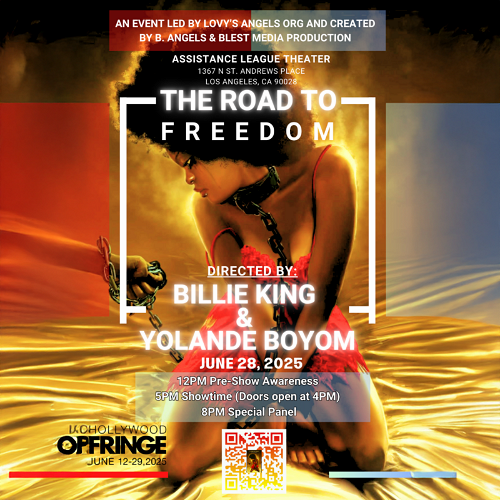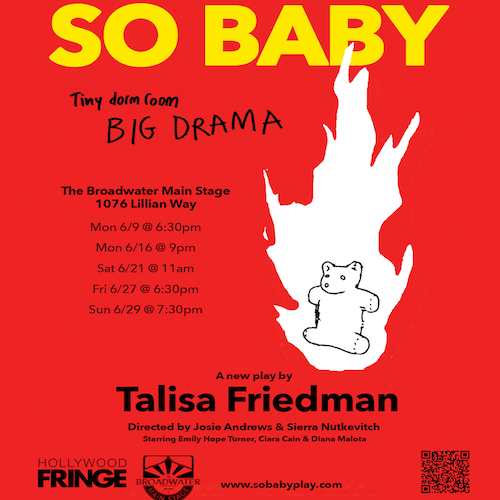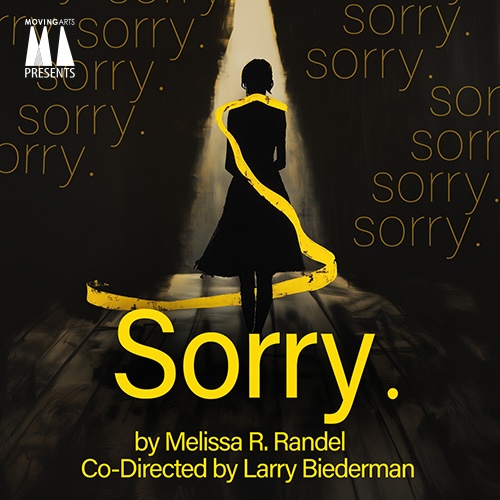Tiffany Ho and Habin Kim (Photo by Angel Origgi)
Reviewed by Martίn Hernández
JACCC Aratani Theatre
Through March 2
RECOMMENDED
President Franklin D. Roosevelt signed Executive Order 9066 on February 19, 1942, ostensibly meant to protect the U.S.A. from internal enemies after the Japanese Empire attacked Pearl Harbor the previous December 7th and drew America into World War II.
However, the true impetus of the Order was the corporate interests seeking to eliminate competition from Japanese and Japanese American farmers and other businesses owners in the Western states. To meet those demands, the order was used to forcibly remove over 120,000 people of Japanese ancestry — many of them U.S. citizens — into concentration camps, termed “relocation centers” by the U.S. government. These machinations — what could be considered ethnic cleansing today — raised little protest from others in the country and avoided such challenges by successfully relying on the racism and xenophobia inherent in the so-called “land of the free”
February 19th is now considered a “Day of Remembrance” by many in the Japanese American community and this new opera by librettist Lionelle Hamanaka and composer Daniel Kessner sheds light on the Order’s effect on one such family and by extension countless others. Like many a heartfelt story about people of color, Hamanaka’s book leans heavy into trauma from loss of livelihood, jail terms, illness, unexpected death, heavy drinking and domestic abuse. Horrors notwithstanding, it is a compelling tale commemorating the tenacity of those surviving under unfair and unbearable conditions not of their making. It is also a reminder that history like this can easily be repeated.
After the trenchcoated FBI Agent (Krishna Raman) delivers a brief history of the Order, we meet the Shimono family preparing to move from their home in Los Angeles’ Terminal Island fishing village. Haruko (Alexandra Bass) laments that she would “do anything to keep my beloved house,” keeping the truth behind the move from her 11-year-old daughter Rebecca (Habin Kim) and pleading with her teenager Suzy (Tiffany Ho) to help with her younger sister. As a fisherman, Mas (Roberto Perlas Gómez) is suspected of spying on U.S. naval installations and is arrested and “held on suspicion” with no charges. Meanwhile, the other Shimonos end up at a permanent camp after nine months of incarceration in the horse stalls at Santa Anita Racetrack.
Mas reunites with the family after he is released and gets a job as a cook in the camp kitchen. However, he soon feels alienated from his family, with Haruko and Suzy testing a newfound independence after his absence. Much to Mas’s disgust, Haruko starts sporting a new American-style hairdo and Suzy is becoming friendlier with her former schoolmate Nobu (Patrick Tsoi-A-Sue). Will Mas be able to maneuver the new dynamics threatening his traditional role? Will he sacrifice his ethics when doing so could keep him from another stint in prison? Most of all, how do all the Shimomos cope with a dehumanizing and racist situation that is driving them apart?
Under Diana Wyenn’s sturdy direction, aided by associate director John Miyasaki, the ensemble offers expert renditions of Hamanaka’s lyrics, which range from lackluster exposition to sublime poetry. Kessner incorporates traditional Japanese motifs and instruments in his score, adding a touch of authenticity to the orchestra’s sound under conductor Steven H. Hofer. Yuri Okahana-Benson’s innovative wooden set smoothly functions as the Shimono’s living space, camp kitchen, and other locations. Gómez, Bass, Kim, and Ho are standouts, both vocally and dramatically as they effectively portray, with grit and humor, a family in turmoil. The supporting cast members (Sarah Z. Wang, Steve Moritsugu, Hisato Masuyama, Dennis Rupp, and Jamie Sanderson) are also in fine voice as they play other camp internees and functionaries.
While Hamanaka mentions the camp’s internal politics and the questionnaire that in effect served as a loyalty oath, as well as an “underground movement” in the camp, she eschews delving into the deeper dynamics of internal political divisions and what a required loyalty oath means for a population incarcerated because of their race. The characters do deliver lyrics extolling the camp’s co-operative market and its union, yet we do not learn how they operated, thus giving us short shrift to the rich history of the organized political resistance to what the U.S. government was doing to the incarcerated.
Still, there is some political bite in Hamanaka’s lyrics, alluding to the suspension of civil liberties by asking “How many men are in jail for suspicion?” as well as “Whose turn is it next time? Yours or mine?”
JACCC Aratani Theatre, 244 S. San Pedro St., downtown LA.; Sat., 7:30 pm, Sun., 2 pm; thru March 2. https://jaccc.org/events/the-camp-an-opera-in-two-acts/ Running time two hours with one 15-minute intermission




















